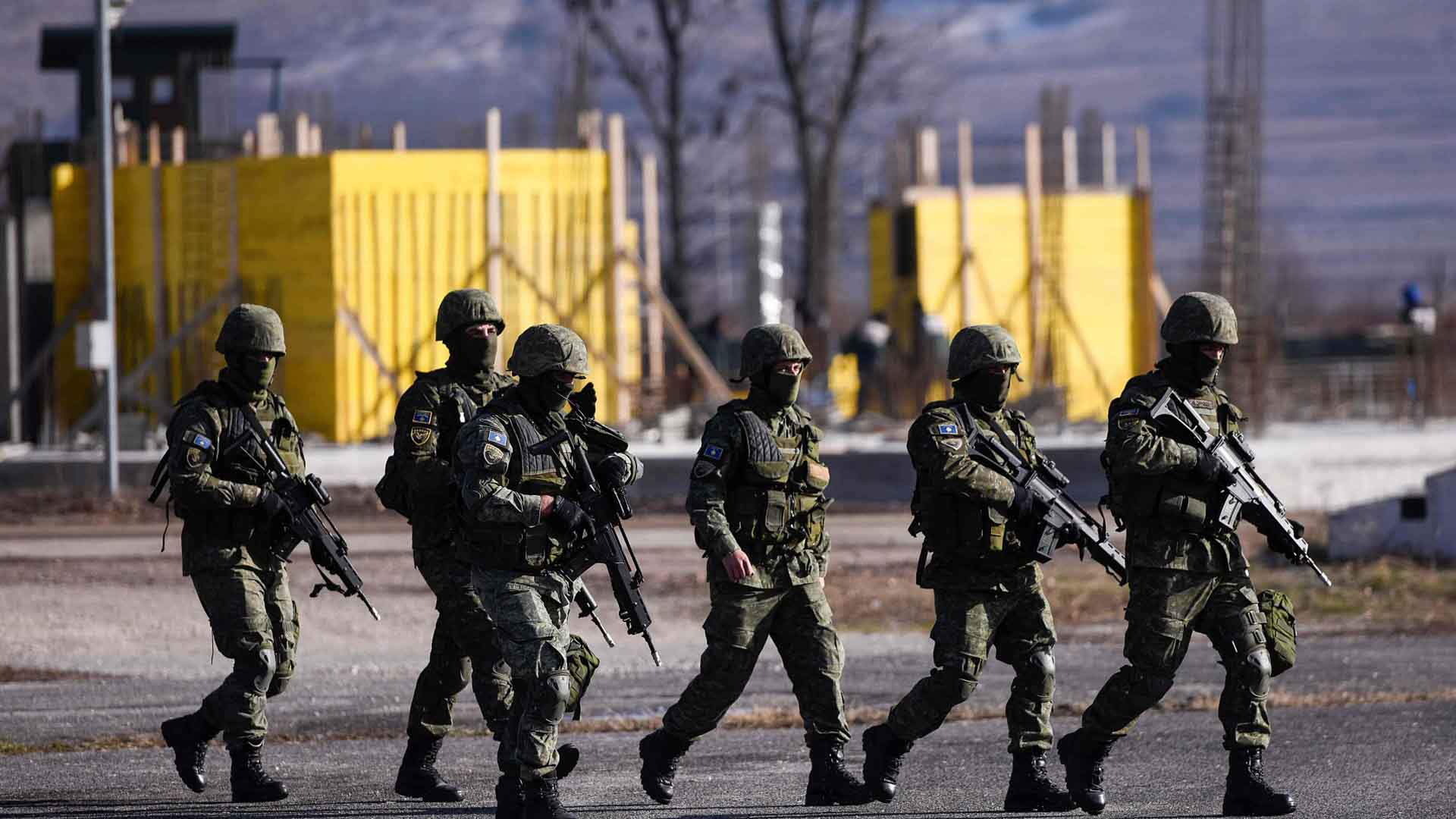
Politics
23:03, 13-Dec-2018
Tensions flare as Kosovo plans to create army
Updated
22:12, 16-Dec-2018
By Aljosa Milenkovic
02:49

Tensions around the breakaway Serbian province of Kosovo and Metohija flared up in the last several weeks, after authorities in Kosovo's capital Pristina announced plans to establish their own military force on December 14.
That move is supported by the U.S., while strongly opposed by Serbia, Russia and China. At the same time, NATO member countries are split on the issue, as its Secretary General Jens Stoltenberg hinted after the ministerial meeting in Brussels at the beginning of December.
Kosovo unilaterally declared its independence back in February 2008, in spite of UN Security Council Resolution 1244 which clearly defines Kosovo as an integral part of Serbia. That resolution was adopted back in 1999 after NATO's 78-day long aerial campaign over Serbia that left thousands dead and inflicted billions of U.S. dollars' worth of damage across the country.
It was widely seen that intervention was initiated as a support to Albanian rebels who wanted independence from Serbia. The majority of people living in that Serbian province were Albanians, with almost 20 percent being Serbs, Montenegrins, Romas and other nationalities.
After the NATO forces entered Kosovo in June 1999, hundreds of thousands of non-Albanians were either chased from the province or just fled in fear of Albanian guerrillas coming along with NATO troops. Just one small part of northern Kosovo, around the northern part of the town of Kosovska Mitrovica Serbs, remained. It has been the focal point of tensions between Kosovo and Serbia for almost two decades now.
Kosovo Albanians are seeking international recognition, but 10 years after it was declared, only about half of the world's nations recognize their independence. The latest failure for Kosovo was the rejection of Interpol membership, which came as a result of Serbian campaigning.
Kosovo was furious and as a response, they've declared 100 percent taxation on all imports from Serbia, which are topping half a billion U.S. dollars annually. But that was not the end.
Kosovo Army – a step too far?
Days after Pristina declared a 100 percent tax on Serbian goods, a new announcement came from Kosovo's capital. That one was about creating their own armed forces. Belgrade's response was swift. CGTN spoke with Serbian Defense Minister Aleksandar Vulin after that announcement and he said that the existence of a Kosovo Army is unacceptable for Serbia.
"The Kosovo Army can't go to war with Albania, it is very unlikely that it'll attack North Macedonia, or Montenegro, which recognize and support Kosovo. The only purpose for using it is confrontation with Serbia and the ethnic cleansing of Serbs living in Kosovo and Metohija. That should be a problem of the entire international community, not just Serbia," Minister Vulin said.
And it was not just Serbia that raised concerns about the transformation of the current Kosovo Security Force into a full army. NATO Secretary General Jens Stoltenberg issued a strong warning against the move after the NATO ministers meeting in Brussels.
"We discussed Kosovo's intention to move ahead with the transformation of the Kosovo Security Force into an army. Such a move is ill-timed. It goes against the advice of many NATO allies, and may have serious repercussions for Kosovo's future Euro-Atlantic integration."
But NATO is not in unison on this issue, as was quickly shown by the new U.S. Ambassador to Pristina, Phillip Kosnett. According to media reports, he said on the same day that "forming a Kosovo Army is a positive step."
On the other side, Serbian officials, including PM Ana Brnabic, didn't exclude the possibility of Serbia using its military in a response to the forming of the Kosovo Army. Head of the Serbian Parliament Committee for Kosovo and Metohija Milovan Drecun explained to CGTN what would be the red line for Serbia that would trigger a reaction by its army.
"If the lives of Serbs in the north of Kosovo would be in danger and KFOR fails to react, fails to protect Serbian people, then there would be nothing else left for Serbia, but to protect its own people. It is not a threat nor our first option. It is our last resort and we don't want that to happen," Drecun said.
On the eve of a new Kosovo Army being established, war drums appear to grow louder in this part of the Balkans, again. Wounds from previous conflicts that ended over 19 years ago are still not healed, but yet there are credible fears that new ones are on the horizon.

SITEMAP
Copyright © 2018 CGTN. Beijing ICP prepared NO.16065310-3
Copyright © 2018 CGTN. Beijing ICP prepared NO.16065310-3